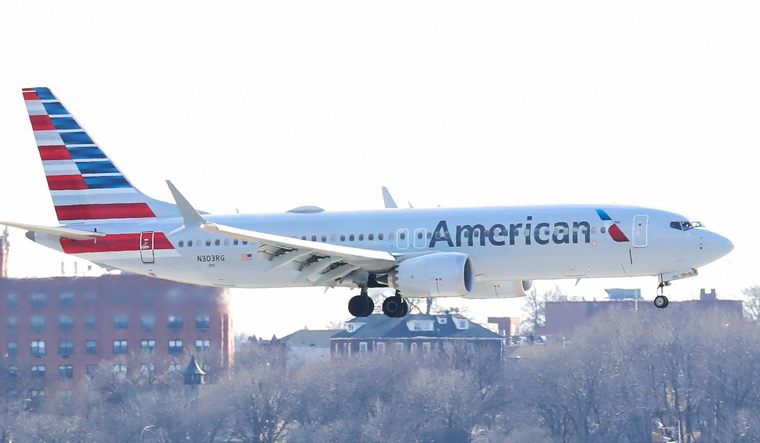The US Federal Aviation Authority (FAA) has said it will not suspend Boeing 737 Max aircraft after a crash in Ethiopia that killed 157 people, despite mounting pressure from senators and workers’ unions.
The Federal Aviation Administration’s acting administrator, Dan Elwell, said a review showed “no systemic performance issues” and there is no basis for grounding the aircraft.
An Ethiopian Airlines plane crashed on Sunday killing all 157 people on board, in the second fatal accident involving the 737 Max 8 model in five months.
A wave of countries and blocs have banned the plane from their airspace.
On Wednesday Hong Kong, Vietnam and New Zealand joined the list of countries that had banned 737 Max models.
The UK, China, the European Union and Australia had previously done so.
Ted Cruz, a Republican senator who chairs a subcommittee on aviation and space, said: “I believe it would be prudent for the US likewise to temporarily ground 737 Max aircraft until the FAA confirms the safety of these aircraft and their passengers.”
Britain, Germany and France joined a wave of suspensions of the aircraft following the crash, followed by a similar decision by India, piling pressure on the United States to follow suit.
Democratic senators Edward Markey and Richard Blumenthal have written to the FAA – which they referred to as “our aviation safety cop on the beat” – asking that the Boeing 737 Max should be grounded “until the agency can conclusively determine that the aircraft can be operated safely”.
Democrat presidential hopeful Elizabeth Warren said that the FAA should follow other nations’ lead “immediately” and “get these planes out of the sky”.
And Republican senator Mitt Romney said: “Out of an abundance of caution for the flying public, the FAA should ground the 737 Max 8 until we investigate the causes of recent crashes and ensure the plane’s airworthiness.”
Boeing has confirmed that for the past few months it has been developing a “flight control software enhancement” for the aircraft, but says it is confident they are safe to fly.
The cause of Sunday’s crash, which followed another disaster with a 737 MAX five months ago in Indonesia that killed 189 people, remains unknown. On Monday, the FAA released details of a series of design changes and training requirements mandated from Boeing on the MAX fleet after the Indonesia crash.
There is no evidence yet whether the two crashes are linked. Plane experts say it is too early to speculate on the reason for the latest crash. Most are caused by a unique chain of human and technical factors.
